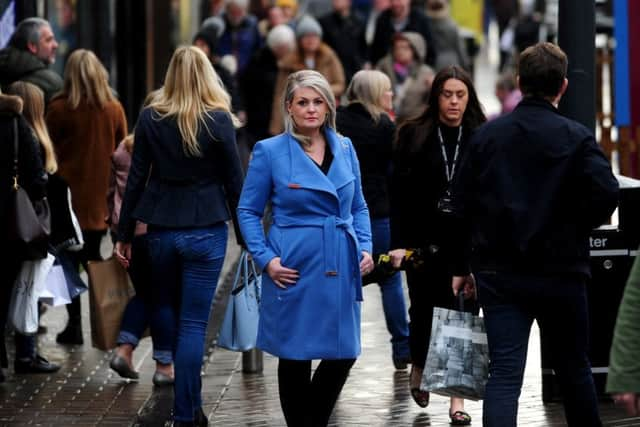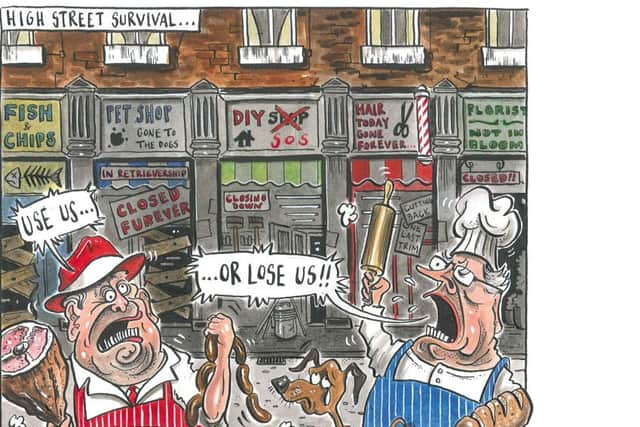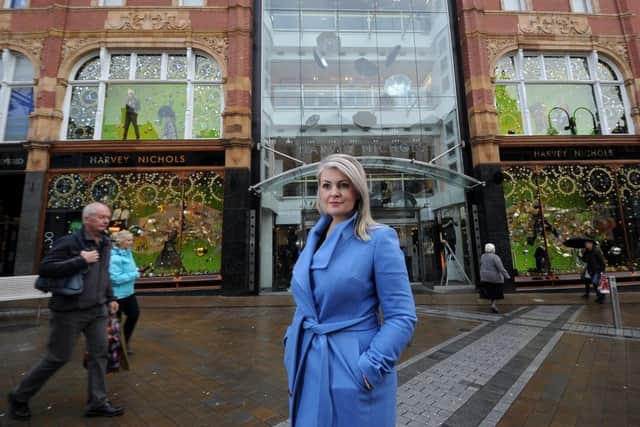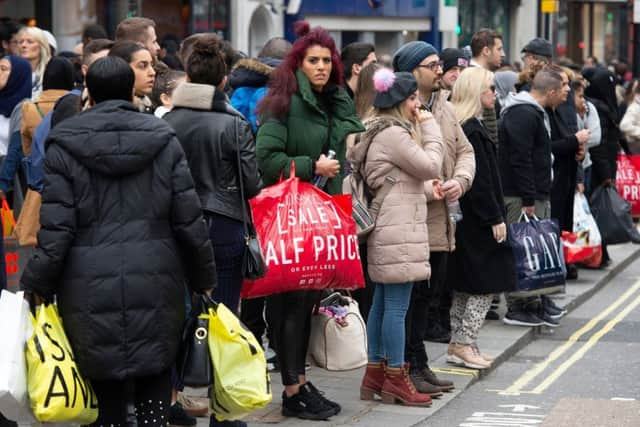Kate Hardcastle: Why our high street shops must wake up and smell the coffee
But I see empty chairs on empty tables. There is no music, and there is blue cloth around the nozzles on the coffee machine.
I walk to the counter, already having not been acknowledged by the assistant who is too busy mopping the floor.
Advertisement
Hide AdAdvertisement
Hide AdTango-ing with the yellow hazard floor sign, I say hello, and before I have had a chance to place my order, the fatal line is delivered: “We’re not doing any more hot drinks now – only cans and bottles for take-away.”


In seconds my brain has already calculated that if the operating hours of 9am to 5.30pm (8.5 hours = 510 minutes) are serving at less capacity each day, that annually over 200 hours of profit opportunity is being effected.
But I know it’s worse than that. Because at the core of this is an attitude, a future, that permits the operational elements of the business to supersede the most vital – serving and engaging with the customer.
Advertisement
Hide AdAdvertisement
Hide Ad

So while we hear constant messages in the media about the fact that online shopping is killing the high street, and business rates for online businesses should be reviewed to make it all a level playing field, this situation has arisen due to many reasons.
The fact that so many large and small organisations, in the business of service, don’t understand the power and the profit that great service can deliver is so fundamental.
Another 175,000 jobs are set to be lost from the high street this year, and the value of retail property is set to tumble further.
Advertisement
Hide AdAdvertisement
Hide AdThis will be another year of headlines that scream “The High Street is dead” and articles will go into great depths to explain the rates at an Amazon warehouse versus the rates of running a department store in a city centre (which are just not a clear comparison). MPs will wade in on the debate, while competitions will celebrate the best town or village high street. And yet the decline will continue.


Is online to ‘blame’? We are shopping online more, and it is very true that we have adopted this channel of commerce over our traditional stores.
The customer was highly cautious in e-commerce’s early days. Still, we continued to try, buy and learn, our attitudes altering along the way to feel more in control, more informed.
Lower prices appealed. Customers enjoyed the speed and efficiency. They also found a place to buy anything and everything, and there are so many emotional benefits that play into online’s strengths.
Advertisement
Hide AdAdvertisement
Hide AdCustomers could find in seconds exactly what they were looking for, no matter how obscure. Online operates a very different set of customer rights – much more generous for returns policies – just when brands like Marks & Spencer were tightening their policies in store.


Online is not a new shopping phenomena, and businesses have been aware of its presence and its power for years – indeed let us just remind ourselves that many of the brands on the high street also have an online offer.
So if you ran a retail or a service business like a travel agent that would be affected by the growth of online, what would you do? What changes would you make to your traditional retail business?
Many businesses have decided to reduce their commitment to retail space, closing stores or minimising the floor space, realistically facing up to the fact that the growth of online is at the cost of sales on the high street because most of us have no more to spend.
Advertisement
Hide AdAdvertisement
Hide AdMany businesses have reviewed business costs. What might surprise you is that a lot of those financial decisions are just that – financial.
Someone sits in an office, and various meeting rooms, with numbers, data and the knowledge that exists inside that firm and makes decisions about the shape of the company.
A lot of the answers do not lie in the pages of information available, for the economy is built just as much on emotion and psychology – and the way someone feels dictates the way they spend or save.
If you were in charge of a business that had a traditional storefront, and you had decided to keep that store open, would you reduce costs immediately by reducing your head count (the amount of staff) and streamlining processes – or would you do the opposite?
Advertisement
Hide AdAdvertisement
Hide AdWould you –- in light of the fact that online is heavily impersonal – make your store(s) the opposite?
Imagine the sales opportunity if the waiter or waitress was so charming, the venue so comfortable and the quality of food was so good that you stayed for an extra course or drink because it felt good.
Imagine a store where an assistant was so helpful, so informed – that they had understood that you were actually looking for an entire outfit – and were able to help you find additional items.
If you need additional access or support getting around a store, imagine that instead of a barrier after barrier from the shop door to the till-point, you were welcomed and felt it was easy to navigate with a wheelchair or a pram.
Advertisement
Hide AdAdvertisement
Hide AdNo-one is putting online shopping back into the magic lamp. Even if work to review business rates happens in a timely manner, customers will still choose to shop where they wish to
So when people ask ‘Kate, how do we start to resolve the challenge of the high street?’ I simply say ‘Yes’.
We need to start putting the wonderful, brilliant people that make every business tick, at the heart of the work we do. Customers. We need to listen to them. We need to respond to them. We need more diverse and enriched boardrooms making sensible decisions with common sense aplenty.
Traditional retail is not dead. It’s dozing – but that’s still dangerous – so it’s time to wake up and smell the coffee. Even if it’s after 4.48pm.
Advertisement
Hide AdAdvertisement
Hide AdKate Hardcastle MBE is a leading consumer expert known as The Customer Whisperer. The presenter of several TV programmes on the retail sector, she is the founder of Yorkshire-based Insight With Passion.